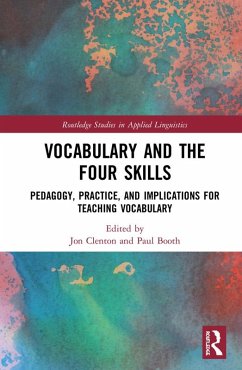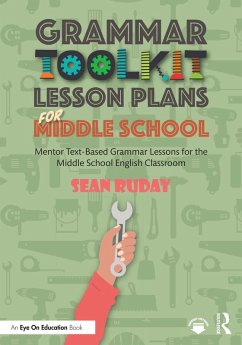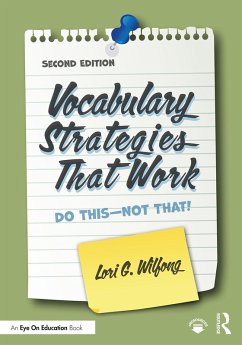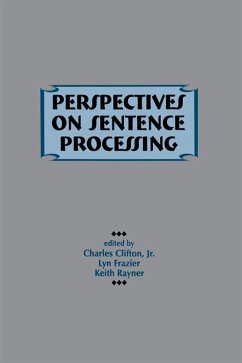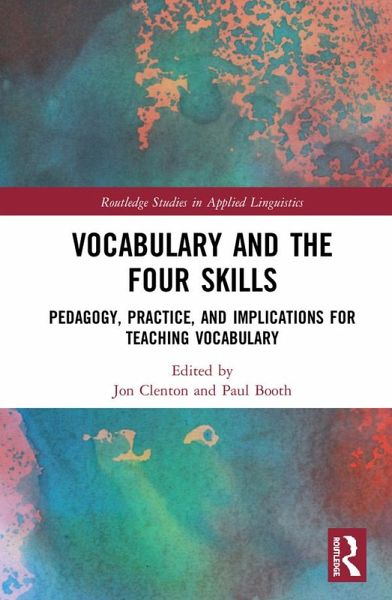
Vocabulary and the Four Skills (eBook, ePUB)
Pedagogy, Practice, and Implications for Teaching Vocabulary
Redaktion: Clenton, Jon; Booth, Paul
Versandkostenfrei!
Sofort per Download lieferbar
42,95 €
inkl. MwSt.
Weitere Ausgaben:

PAYBACK Punkte
21 °P sammeln!
This edited volume provides a single coherent overview of vocabulary teaching and learning in relation to each of the four skills (reading, writing, listening, speaking).Each of the four sections presents a skill area with two chapters presented by two leading experts in the field, relating recent advances in the field to the extent that each skill area relates differently to vocabulary and how this informs pedagogy and policy. The book opens with a summary of recent advances in the field of vocabulary, and closes by drawing conclusions from the skill areas covered.The chapters respond to emer...
This edited volume provides a single coherent overview of vocabulary teaching and learning in relation to each of the four skills (reading, writing, listening, speaking).
Each of the four sections presents a skill area with two chapters presented by two leading experts in the field, relating recent advances in the field to the extent that each skill area relates differently to vocabulary and how this informs pedagogy and policy. The book opens with a summary of recent advances in the field of vocabulary, and closes by drawing conclusions from the skill areas covered.
The chapters respond to emerging vocabulary research trends that indicate that lexical acquisition needs to be treated differently according to the skill area. The editors have chosen chapters to respond to recent research advances and to highlight practical and pedagogical application in a single coherent volume.
Each of the four sections presents a skill area with two chapters presented by two leading experts in the field, relating recent advances in the field to the extent that each skill area relates differently to vocabulary and how this informs pedagogy and policy. The book opens with a summary of recent advances in the field of vocabulary, and closes by drawing conclusions from the skill areas covered.
The chapters respond to emerging vocabulary research trends that indicate that lexical acquisition needs to be treated differently according to the skill area. The editors have chosen chapters to respond to recent research advances and to highlight practical and pedagogical application in a single coherent volume.
Dieser Download kann aus rechtlichen Gründen nur mit Rechnungsadresse in A, B, BG, CY, CZ, D, DK, EW, E, FIN, F, GR, HR, H, IRL, I, LT, L, LR, M, NL, PL, P, R, S, SLO, SK ausgeliefert werden.




